
Literary Adventures
Episode One: Sandra Cisneros
Join Aster(ix) Journal as we venture into the literary unknown with our favorite writers, interviews, and reportage.
(a)
read
What Sandra Said
Angela Velez: Hi there! My name is Angela Velez and today, I’m going on an adventure with Sandra Cisneros. We’re in Pittsburgh, Pennsylvania, and we’re visiting the Andy Warhol Museum.
It’s mid September and over 80 degrees outside, but inside the museum, the AC is kicking and we’re standing under a huge photograph of Andy Warhol. Maybe you’ve seen it before. He’s wearing sunglasses and posing on a giant red couch. His feet are sprawled on sofa cushions and his hands are resting over his chest. The photo hangs above a life-size replica of the couch. You can’t help but want to pose just like him on it. And so we do.
With me is Angie Cruz, the founder and editor of Aster(ix) literary journal. The two of us are meeting Sandra to talk about some of Andy Warhol’s obsessions: fame and celebrity. These are not Sandra’s favorite subjects. She’d much rather talk about art and what it means to people. In fact, she says she’s nothing like Andy Warhol. With her long black hair, blunt bangs, and boundless energy, she certainly doesn’t look like him. And yet, everything in the museum seems to thrill her—from the homemade scrapbooks to the publicity shots of old black and white movies.
As we move through the museum, Sandra admits that she might have one thing in common with Andy Warhol.
Sandra Cisneros: I used to collect, like Andy Warhol, a lot of memorabilia. People don’t realize a lot of my collections were textiles. So I had clothes from the ‘30s. I had gloves that were up to here, beaded. I used to have ‘30s gold gowns, gold lace, even backless. I used to wear china poblanas from the ‘20s and lift up the skirt and sit on my underwear, because if I sat on the sequins, they would leave a trail everywhere I was going, they were so old.
So I would wear these clothes, Lucite handbags, and Lucite heels. But that was my clothes. It wasn’t like I was going anywhere. Where you gonna go in San Antonio? You would just go to dinner and people would say did you come from a show? No!
Or I would wear vintage black lace ‘30s slips that were so old, that they would start dissolving. I would start tearing them, laughing, and go home with my slips, and look like I’d been in a fight. But you could tell I had a good time.
AV: Sandra Cisneros isn’t an ordinary person. Maybe no artists are, but meeting her in real life, it’s hard to think of her as anything but a literary icon and an activist, the kind of woman who earns a National Medal of the Arts from President Barack Obama. Contributing to this aura was our backdrop. The “Stars of the Silver Screen” is an exhibit devoted to black and white photographs and movie posters of Warhol’s glamorous Hollywood friends. Walking through this exhibit with Sandra seemed fitting — the 1930’s are her favorite time period and she’s amassed a certain amount of fame, but it’s not something that concerns her.
SC: You know, celebrity is really something that… doesn’t it come from the word celebrated? People that are celebrated. But I don’t really like the word “celebrity” because a lot of people are celebrities just because they have a big fat ass, you know? I don’t want to be with a celebrity and I don’t want to be seen as a celebrity and I don’t want to hang with a celebrity.
AV: I think many would say for many Latinas, for many writers, you are a literary hero for them, and a celebrity. How do you define that relationship with the reader?
SC: Celebrity again, is something that doesn’t come from me. It comes from how people look at you. People say, ‘Oh you’re famous,’ I say that’s how you see me. I don’t see myself that way. So it’s not something intrinsic in the person, it’s from the viewer.
AV: Yeah, it’s what they’re bringing to you.
SC: It’s a projection.
AV: Is that challenging, when you encounter that projection?
SC: Yeah, I really don’t enjoy it. People are projecting things. They’re projecting something that they want from you, that they have in themselves. Everybody has that light, that power within themselves.
AV: For Sandra, glamour is entirely democratic. It’s found in old lace and yellowing photography books, and spurred along by champagne and chandeliers.
SC: So like you know when we go to parties, we would be so bored. I said — this is a party? Whereas ours were like YEAH! happenings,. It was like everyday was something fantastic, because we would get all dressed up and perform. Every party I go to without this crowd seems boring. What’s the point? Might as well stay home. We really lived a time that I would say this was better than Paris in the ‘20s, and it was.
AV: Even as Sandra rejects her own celebrity, she also recognizes the impact that her work has made, and she’s not shy about the kind of legacy that she’d like to leave behind.
SC: I hope that before I die, that I would see that my work could make peace within communities that are at war, even metaphorically at war with one another. If I could win the Peace Prize, that would be so wonderful. That would be like, okay now I can die.
The literary prizes aren’t that important to me. The prizes I get for activism are the most meaningful awards. The awards I get for making political change. Political change is spiritual change, spiritual change is political change. Art is political and art is spiritual for me, it’s all the same. So If I got an award for activism, that’s the most important thing in my life. I know who I am as a writer and I don’t need awards for writing. They get redundant after time. I know who I am.
To me, if I was able to make change that would work for making the planet better and more peaceful, it wouldn’t even need an award. That is the award!
AV: Well, that’s it for me! Thanks so much for adventuring with Aster(ix). Be sure to check out “Dirty Laundry,” the newest issue of Aster(ix) Literary Journal. It explores the intimacies, painful secrets, and mysteries that we carry with us. You can read the latest poems, stories, and interviews at asterixjournal.com
look
Photography by Heather Kresge
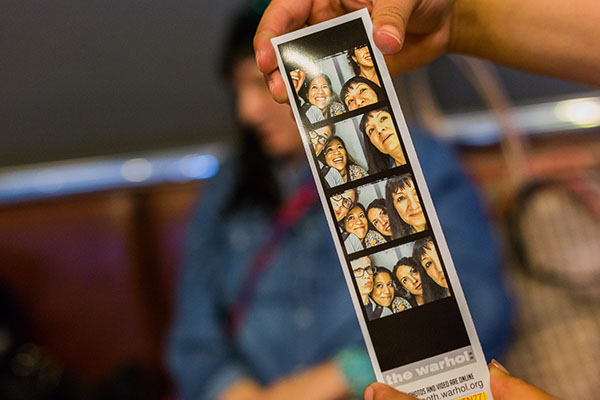
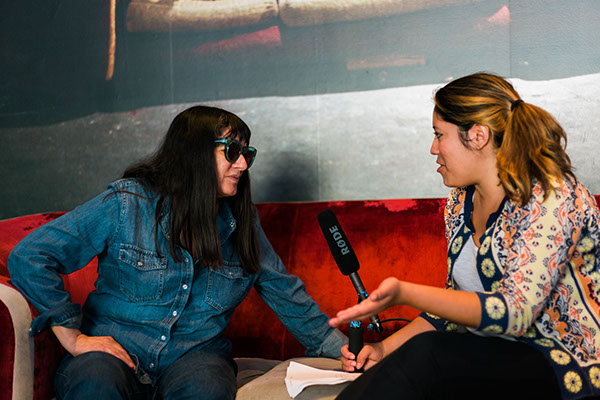
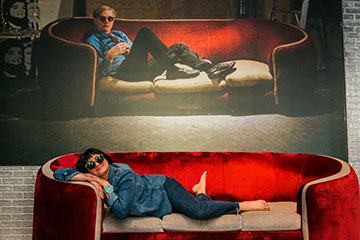
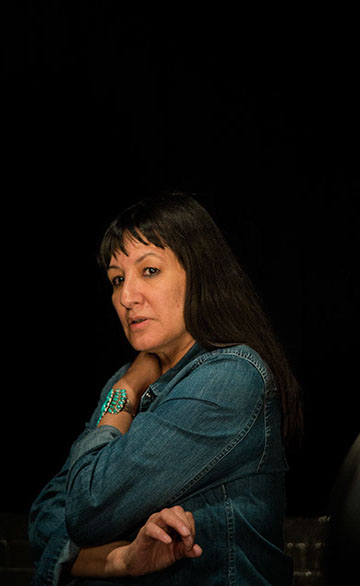
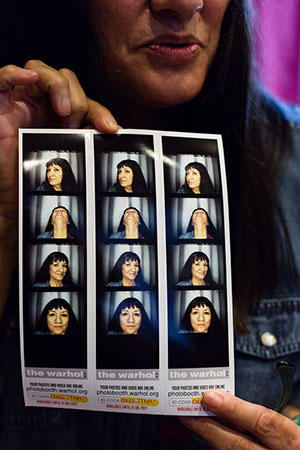

"When I was in middle school we moved to a house where I had the only bedroom with a door in the whole house but I couldn’t close the door because I had a big piece of furniture. The room was really tiny, like only a twin bed could fit in it and a dresser and a little corridor this wide... But the furniture was longer than the room and the door couldn’t close because of the furniture. I had a door, but I couldn’t close it..."
